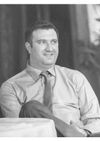Art against the Cynics
Reflections on Shaun Berke’s Winter and Summer: a memory of nature and culture

Of the many beautifully written passages in Shaun Berke’s Winter and Summer (on Rousseau: “ Rousseau identifies the advent of Reason as our Original Sin and the rise of iron and wheat as the ruin of the human race”, on the alienation of modern work: “our kind fashioned a world of sitting in boxes with striped nooses around our necks”), one section in particular on The Aesthetic Value of Nothing stood out to me.
In this subsection, drawing on Nietzche, Shaun points out that, “the ironical man pretends to be ignorant so to humiliate. The purpose of irony is to humble and to shame; irony is a rudeness and conceit used to feel superior.” (p.39).
This passage reminded me of some of my own reflections on cynicism. I’m pretty cynical about cynicism. It’s so lazy. In fact, cynicism is too naive. It desires a completely faultless ethical world, it can’t cope with the compromises of the actual world while nevertheless working towards the good.
Far from being world-weary and wise, cynicism is incredibly naive and idealistic. The cynic has a highly developed sense of propriety against which everything is judged and found wanting. Cynics don’t understand that a society can function quite well, better, even, with a certain amount of grace — ‘corruption’, as they would see it — where the rules are implied and somewhat malleable rather than through their strict adherence and totalitarian application.
Cynics establish the absolute perfect enforcement of all rules under all circumstances at all time as an impossible ethical standard. However, their instantiation of this ethical standard is not intended as a shining star to take aim towards as individuals and societies try to better themselves, however imperfectly they may strive towards it, but as a doubly cynical cop-out. Their cynicism is not even sincere, but a foil for disengagement and passivity.
Furthermore, it just takes too much effort to be cynical all the time. Just as it’s wrong to live in a naive state of Panglossian denial about the negative aspects of life, so, too, it is wrong and corrosive to always assume the worst of everyone. Shaun recognises this, warning us that, “The habit of irony and sarcasm spoils the character”, and, quoting Nietzche in Human, All-Too-Human, ““fosters the quality of a snappy dog that has learned to laugh and forgotten how to bite.”” Indeed, cynics paint themselves into a corner, since by having sneered at everything they never dare allow themselves the vulnerability of a passionate commitment to a cause.
Against such cynicism, Shaun mounts A Call to Arts; art against the cynics. Let us look for beauty in great works of art or in a kind act between friends or strangers. In this light, Winter and Summer is indeed an apt first publication for the Halkyon Guild, based as it is upon the ancient Greek myth of a little ice bird whom took time to reflect on the travails of the world while brooding her eggs, softening Zeus’s heart with her lamentations. May the icy grip of wintery cynicism thaw to give forth the blooms of a thousand such flowers.
